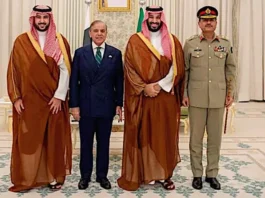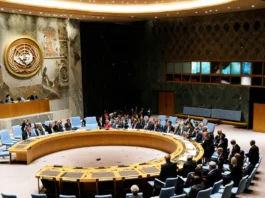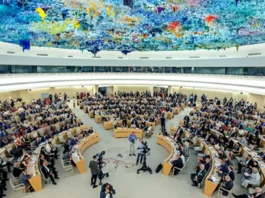
Understanding the Dangers of Unresolved Conflicts
Unresolved conflicts pose a significant threat not only to the nations directly involved but to global peace and stability as well. The consequences of such lingering warfare manifest in various forms, primarily through persistent violations of international law, as witnessed in regions like Gaza, Ukraine, Sudan, and Myanmar. In these scenarios, the absence of effective conflict resolution mechanisms leads to a cyclical pattern of violence and instability that can affect generations.
The ongoing situation in Gaza, marked by recurrent hostilities and humanitarian crises, exemplifies the dire implications of unresolved warfare. The civilian population suffers immense hardships, including loss of life, displacement, and psychological trauma. Similarly, the conflicts in Ukraine and Sudan bring about not only immediate suffering but also long-term consequences for communities and their social fabric. In Myanmar, the protracted conflict has resulted in significant violations of human rights and an alarming refugee crisis, further undermining regional stability.
Vulnerable populations bear the brunt of these conflicts, often facing the dire consequences of violence and neglect. Children, in particular, are susceptible to the adverse effects of conflict, which can lead to a loss of education, recruitment into armed groups, and lifelong psychological scars. These experiences can perpetuate cycles of violence, making it essential to address the root causes of conflict and prioritize the protection of human rights.
International actors, including governments and non-governmental organizations, play a crucial role in addressing these crises. However, their involvement can sometimes exacerbate tensions instead of alleviating them, particularly when interventions lack a nuanced understanding of the local context. Thus, it is imperative for the global community to foster dialogue and implement strategies that emphasize peace-building and adherence to human rights norms, ensuring a more stable world for future generations.
The Impact of Human Rights Violations on Civilian Populations
Conflicts across the globe have led to severe human rights violations, heavily impacting civilian populations. The consequences of war and unrest are acutely felt by those who are often caught in the crossfire, resulting in dire humanitarian crises. High-profile cases such as the plight of the Palestinians in Gaza illustrate the grave conditions faced by civilians during prolonged conflicts. The ongoing blockade has resulted in widespread poverty, lack of access to essential medical care, and inadequate clean water resources. Reports indicate that a significant portion of the population faces food insecurity, exacerbated by limited humanitarian aid due to political circumstances.
Similarly, the humanitarian crisis in Sudan has produced a devastating toll on its populace. Armed conflicts and governmental oppression have led to displacement, with millions of individuals fleeing their homes. Many face violent reprisals, loss of livelihoods, and difficulties accessing basic necessities. International humanitarian organizations struggle to deliver aid due to unsafe conditions and bureaucratic obstacles, leaving many in desperate need. The ongoing violence further entrenches poverty and disrupts the social fabric, making recovery from such crises a perennial challenge.
In Myanmar, the Rohingya community has been subject to egregious human rights violations characterized by systematic persecution. Forced displacement, arbitrary detention, and violence against this ethnic minority have resulted in mass exoduses to refugee camps in neighboring countries. These camps are often overcrowded and under-resourced, lacking essential services like healthcare and education. The ongoing restrictions on humanitarian access severely impact relief efforts, which are vital for the survival of the affected populations. Without adequate support and intervention, the human cost of these conflicts continues to rise, highlighting the urgent need for global attention and action.
The Role of the UN and International Community in Human Rights Monitoring
The Office of the United Nations High Commissioner for Human Rights (OHCHR) plays a pivotal role in the global landscape of human rights monitoring. Established to promote and protect human rights, the OHCHR is instrumental in investigating violations, advocating for accountability, and fostering national and international human rights frameworks. One of its primary responsibilities includes monitoring human rights situations across various countries, particularly in regions affected by conflict. This monitoring involves collecting and analyzing data on human rights abuses, engaging with local communities, and collaborating with governments to foster compliance with international human rights standards.
In addition to monitoring, the OHCHR undertakes specific projects aimed at enhancing human rights frameworks and implementing early warning systems. These initiatives are designed to identify potential human rights crises before they escalate, allowing the international community to take preventive action. By establishing effective communication channels and collaborations with local organizations, the OHCHR enhances its capacity to address human rights violations promptly. Such proactive engagements are essential in creating a robust response system that can react swiftly to emerging situations threatening human rights.
However, monitoring human rights in conflict zones presents significant challenges. Human rights monitors frequently face access restrictions imposed by armed groups and unstable political environments. These barriers hinder the ability to gather reliable data and limit the effectiveness of interventions. Moreover, the safety of monitors in such contexts is a pressing concern, as they may be targets of violence themselves. Despite these obstacles, the commitment of the OHCHR and the broader international community remains steadfast in striving to uphold human rights amidst the complexities of global conflict, ensuring that violations are documented and addressed appropriately.
Global Response to Human Rights Violations: Challenges and Opportunities
The response of the global community to human rights violations has become increasingly complex in recent years, reflecting the ongoing tensions between national interests and the necessity to uphold human dignity. Numerous statements made by delegates during international forums have highlighted the varied perspectives on the human rights situation in different regions. These statements often unveil the underlying geopolitical motivations that influence reactions to reported abuses, creating a fragmented approach to addressing these critical issues.
One prominent challenge is the inconsistency in how nations respond to human rights violations, often influenced by their political alliances or economic interests. For instance, countries may condemn abuses occurring in rival states while remaining silent on similar actions undertaken by their allies. This selective outrage undermines the credibility of the global human rights system and leads to skepticism among those advocating for the protection of fundamental rights. Moreover, the politicization of human rights issues can create diplomatic stalemates that hinder meaningful discourse and action.
Despite these obstacles, there remain significant opportunities for the international community to enhance its response mechanism to human rights violations. A unified approach is essential for upholding international humanitarian law and ensuring accountability for perpetrators. This necessitates fostering collaboration among various stakeholders, including governments, non-governmental organizations (NGOs), and civil society. A collective effort could facilitate the sharing of best practices in monitoring abuses and addressing root causes, ultimately strengthening the global framework for human rights.
Emerging platforms such as the Universal Periodic Review and regional human rights monitoring bodies could serve as avenues for fostering cooperation and driving systemic changes. By addressing vulnerabilities and reinforcing commitments to uphold human rights universally, a more integrated global approach could pave the way for a more effective response to the ongoing crisis of human rights violations, ensuring that future actions are not only reactionary but also preventive in nature.



